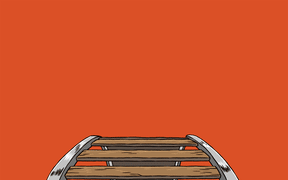Online gambling is growing fast in New Zealand, but critics say new government ideas for regulating websites focus on what's good for the industry, rather than protecting people from harm.
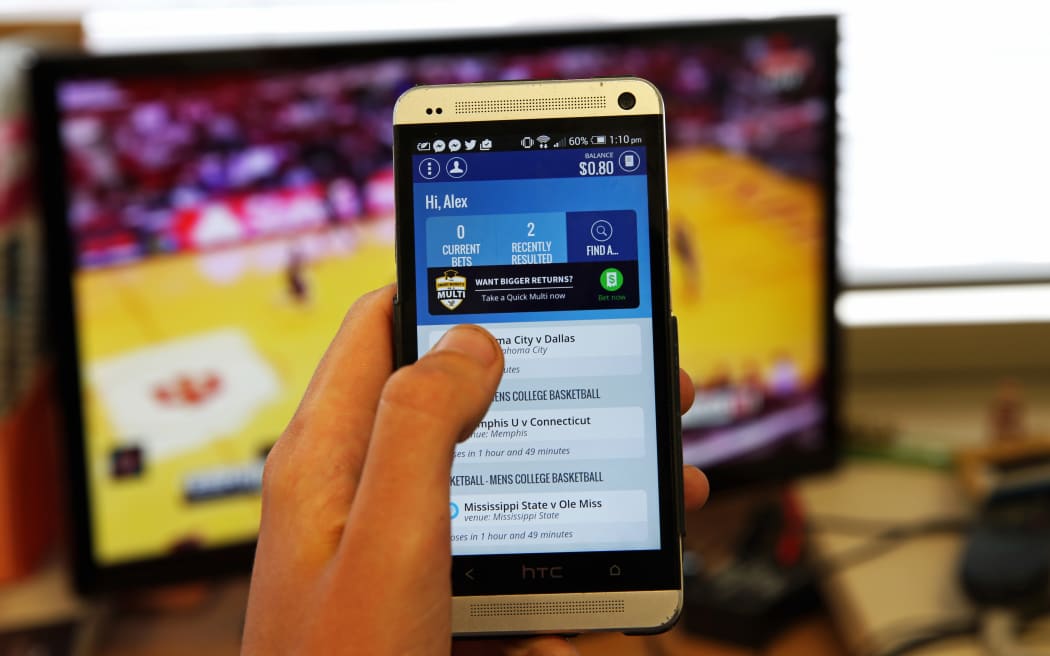
The government is reviewing the Gambling Act to keep up with the growth of online gambling. Photo: RNZ / Alex Robertson
Hours after attending a close family member's funeral, Charlotte sat in a car and wept. She wept for who she had lost, but also because the day made her reflect on her own desperate situation. She was in her mid-thirties and over the previous decade had accumulated about $40,000 of debt. Some days she would call in sick to her Wellington job when her card declined at a petrol station and she had no way to make it to the office.
After the funeral in November 2017, as her cheeks dried, she opened Facebook and saw an advert for Mega Moolah, an international online casino promising "free spins". She created an account, uploaded $10, and tried the virtual slot machines. She played again the next day, and on the third won a relatively small amount - $100 or $200 - she doesn't remember exactly. "It was a nice distraction from reality. I remember being struck by the pretty colours and fancy music and the thrill of the spinning wheels. I thought, what's the harm, I've got next-to-nothing to my name anyway."
The win pushed her to keep playing. A part of her believed it was a viable way to earn some money on the side. A few weeks later she won $5000. "That was worth one of my credit card debts, so I started to hope I could pay off more."
It was the start of a gambling problem - one she says unfolded in three stints. This first stint, which started after the funeral, lasted about four months. She was obsessive. "I was playing every day, for hours and hours, and every time I logged back in it was like going back into the same dark place. It was an escape from feeling alone in the world."
Eventually, somehow, she managed to stop - banning herself from the site. She didn't tell anyone.
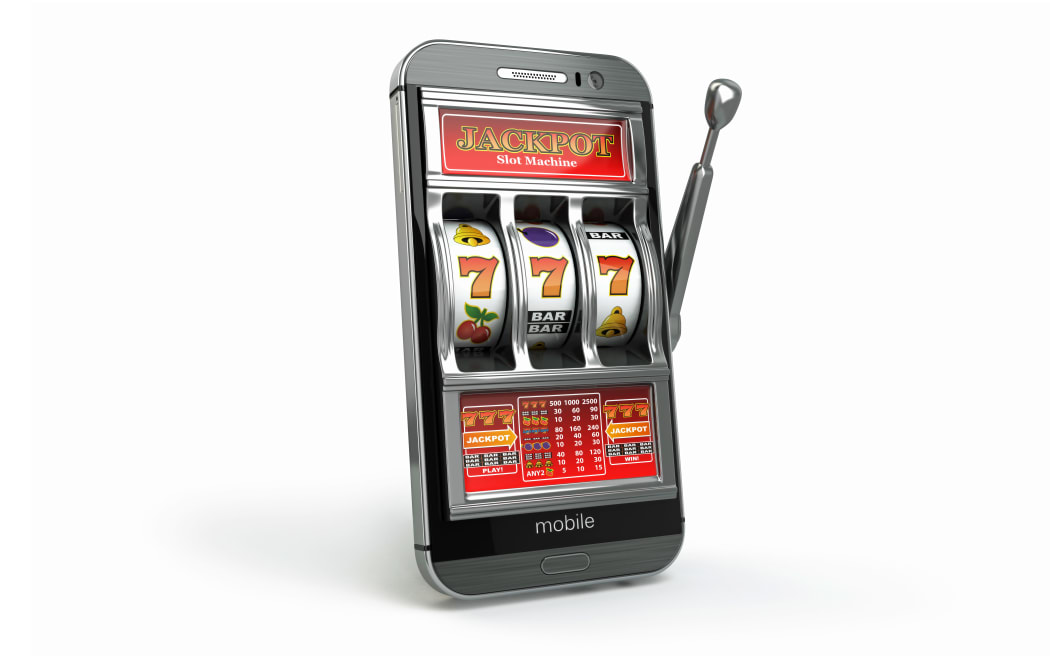
The government says NZers spent $381 million on offshore gambling sites in 18 months. Photo: 123rf
As more New Zealanders pour money into overseas casino websites and betting agencies - an incredible $381 million through offshore operators in the past 18 months - the government has announced it wants to review the 2003 Gambling Act to make sure it keeps up with technological changes.
On 31 July, the Department of Internal Affairs released a discussion document suggesting four options for reform. But critics say it is more focused on what's good for the economy, than reducing harm from gambling. Indeed, three of the options would lead to more gambling products being made directly available to New Zealanders. The fourth proposes retaining the status quo.
Right now, Lotto and the TAB are the only legal online gambling providers. The first of the government's three reform options would allow either to offer more online gambling products, such as an online casino, to persuade gamblers to return to the New Zealand market.
The second would allow new licensed operators into the New Zealand market. One could be SkyCity, which this month launched a Malta-based online casino. The company says it would happily move the new website to New Zealand if it was allowed, and until then will rely on people finding it via Google searches.
The third option would allow international operators, with sites like Mega Moolah, for instance, to apply for New Zealand licences. The DIA admits it would probably rely on "voluntary compliance", but says "increased international competition would ensure New Zealanders were offered good betting odds and promotions".
The public submissions period lasts until the end of September.

Online gambling is instantly available at the press of a button. Photo: 123rf
Charlotte's second problem gambling stint began only a few months after her first ended. Her financial troubles hadn't eased and life still felt like a struggle. She decided to "dabble" again, yet "pushed and pushed and pushed" herself to play more. The same sickening feeling returned as she spent more and more on the digital slot machines. Then she won an $80,000 jackpot.
Charlotte paid off her debt and started making plans for the remainder of the money, flirting with the idea of buying her own home.
But guilt soon replaced joy. She says the money began to feel "dirty". She would tell herself, "You're single, you don't need to spend money on a house," or, "You still don't have enough for anything meaningful."
She sighs. "You would like to think that a functional and intelligent human being working full-time would be able to stop after winning $80,000."
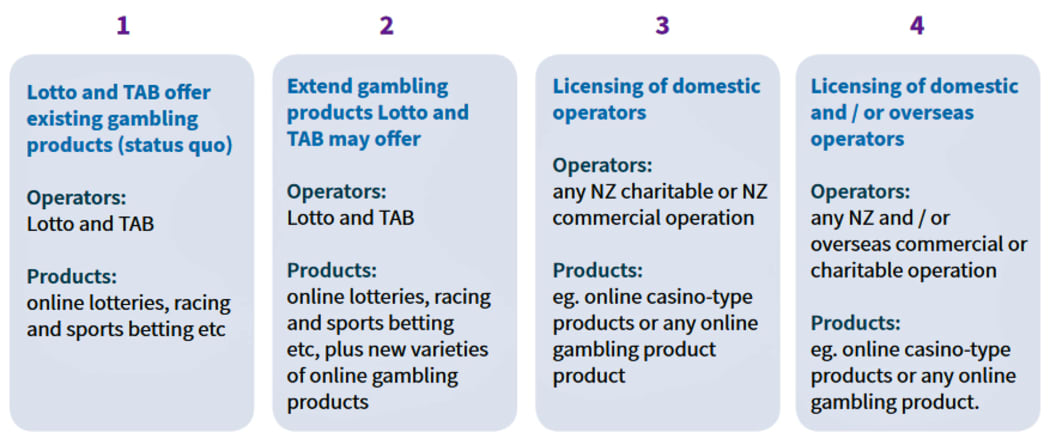
The DIA's discussion document gives four options for reform. Photo: Screenshot
According to Internal Affairs, the Ministry of Health is reporting "low numbers" of people asking for help with online gambling, but Problem Gambling Foundation spokesperson Andree Froude says that's because online gambling is a new, burgeoning world and we're yet to see the extent of the problem.
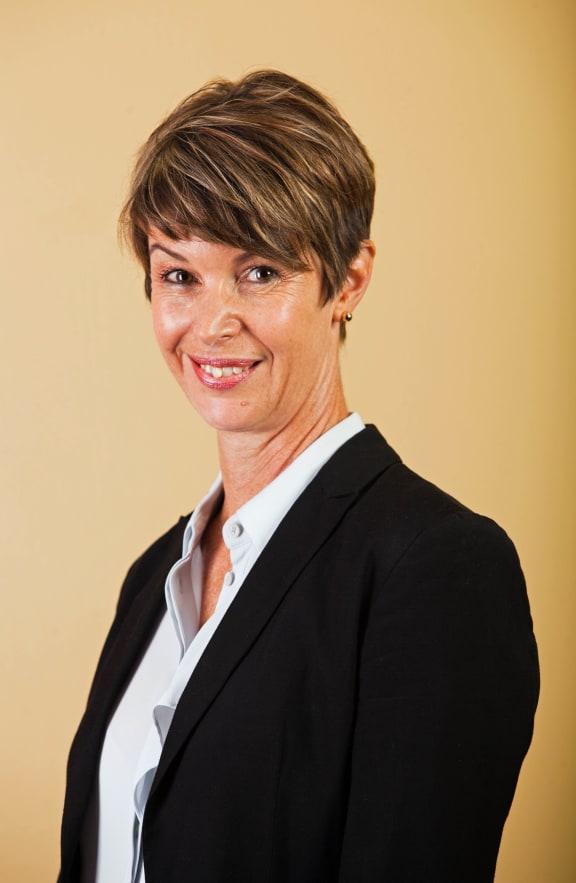
The Problem Gambling Foundation's Andree Froude wants harm minimisation to be the focus. Photo: nazphotos
"The very nature of online gambling is hidden - you can carry around a betting agency in your pocket." You can gamble in bed, at work, or on the toilet.
The value of international online gambling is expected to more than double between 2017 and 2024, while in New Zealand, the prevalence of online gambling is mushrooming. Last year, Lotto attracted new customers by introducing online scratchies and Texas Hold'em poker, while in January, the TAB unveiled a platform that included a raft of new betting options, and features like "Cashout" and more live streaming.
In its most recent financial report, the NZ Racing Board, which operates the TAB, said its digital channels now make up 60 percent of its betting turnover. Its mobile app is the fastest growing "customer touch point" - up 59 percent, or $47.2m, in a year. Its annual report boasted advertising campaigns had led to almost 80,000 first-time bettors. The TAB declined to comment for this story.
New Zealand isn't the only country grappling with the rise of online gambling. In the UK, where both domestic and international providers are licenced, the Labour Party's deputy leader Tom Watson recently declared online gambling addiction a "hidden epidemic". Several MPs and campaigners want limits on the amount people can bet, while the Gambling Commission there is currently considering banning credit cards.
Australia has banned live-betting during games and events, and people are unable to play at online poker rooms or online casinos. Yet that's led to rampant offshore gambling, which could grow close to $AU1 billion in spending next year.
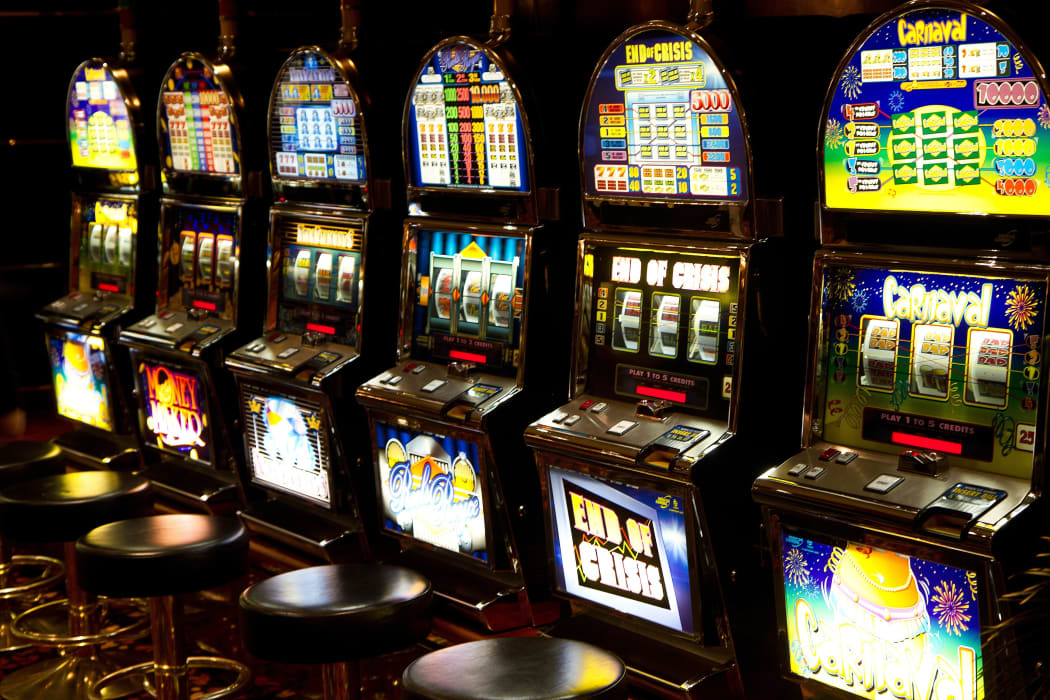
Traditional forms of gambling are increasingly moving to the online space. Photo: 123rf
Internal Affairs is clear it's not aiming to reduce the power of Lotto and the TAB, but does mention two new options for protecting people from harm: restricting the use of credit cards on gambling sites, and banning certain sites on public wifi. It also suggests extending problem gambling education, or funding more problem gambling services.
That doesn't go nearly far enough for those who have seen the damage gambling can wreak, especially as it comes just after another government decision that caused concern.
Last year, a report commissioned by racing minister Winston Peters made several recommendations to reverse the decline of racing. The report ultimately found people should be encouraged to spend more at the TAB, and on new online products like virtual horse racing. It also recommended the government waive the $13 million betting levy the NZ Racing Board pays every year, as a "clear signal of its support" for the racing industry. In May, Peters announced the government had approved scrapping the levy.
Now, the Problem Gambling Foundation's Froude says Internal Affairs' reform discussion document is also focusing on industry rather than protecting people. "We don't want to see an increase in online gambling opportunities, because almost certainly that [would] lead to an increase in harm."
Froude says the few harm reduction measures in the discussion document are helpful - "Banning credit cards is a good start, as they're an easy way for people to get into debt" - but says stronger measures are needed. "We don't want to keep being the ambulance at the bottom of the cliff."
Haylee Koroi, a Māori public health advisor in gambling harm, also says harm minimisation clearly isn't the focus of the DIA's discussion document. "The government has given us four options and one of them focuses on expanding what already exists, and two are about opening the market. I don't think the harm aspect has been thought through."
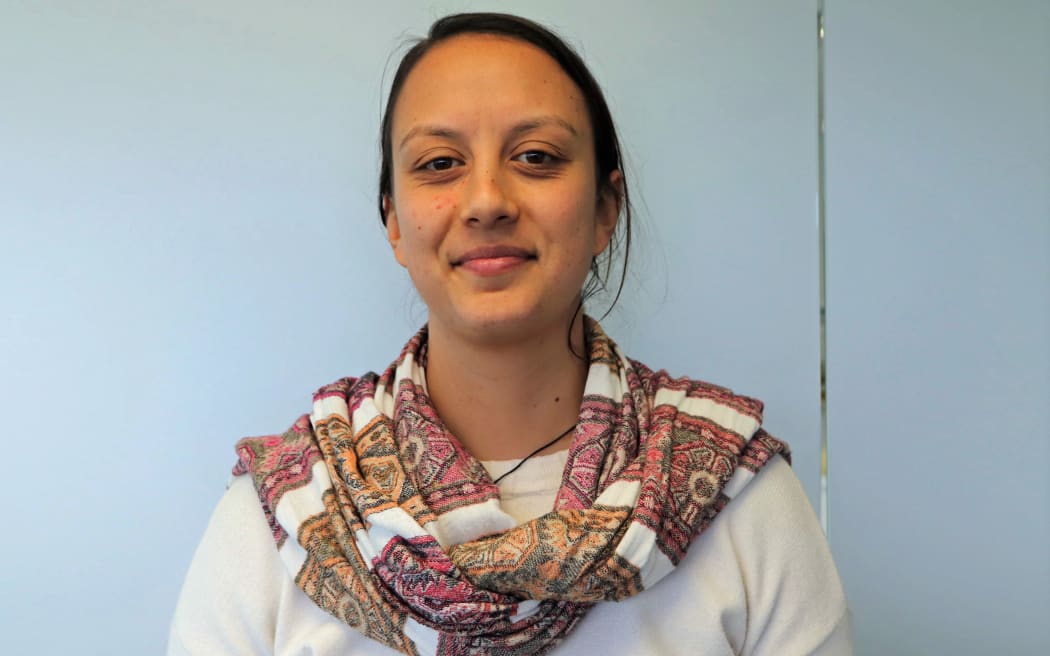
Public health advisor Haylee Koroi wants to talk about the social drivers of problem gambling. Photo: Supplied
Internal affairs minister Tracey Martin has a matter-of-fact opinion of gambling. "My personal view is that humans have done it since time immemorial. We're never going to stop it, so therefore we have to manage it."
She, like the Problem Gambling Foundation, believes online gambling is a bigger issue than what's being reported. "I do think it's a hidden problem, and with all due respect to the Ministry of Health, we're basically waiting for people to get harmed before we decide it's a problem. Right now, we're not able to see those people who are drifting towards harm."
Online gambling "could be far more dangerous to New Zealanders than [gaming machines] have ever been because it is unregulated", she says.
Yet, she concedes the DIA's discussion document doesn't so much focus on ways to prevent harm, as look at options that work for industry. "The dollar value being lost overseas is one of the motivators," she says.
Nevertheless, she's urging people to take some of the responsibility for reducing harm. "I'm hoping that people won't be stopped by what they've been asked to comment on, but suggest potential solutions themselves... I'm the last person to suggest I'm an expert on what is actually possible and what is the best way to minimise harm, particularly in offshore online gambling."
While a law change could take months or even more than a year, Martin seems to be leaning towards a licensing system that would allow new operators into the New Zealand market. She says they would need to obey three principles. "I want trusted providers, community benefit and harm minimisation." If that happens, the government could then look at introducing caps on how much people can spend, as well as getting a clearer picture of who is gambling on what.
Māori public health advisor Haylee Koroi says that while taxing new operators would increase the financial benefit for problem gambling services and community sport, "even that argument is weak in itself, because I'm not sure it would offset the harm caused by new markets."
She says it's also a "huge assumption" that offering New Zealanders new products in a regulated system is going to stop people heading to offshore casino sites like Mega Moolah.
Earlier this year, the government said it would spend an extra $60 million on problem gambling services, though Koroi says, "I also hope we can talk about how gambling is often a symptom of wider issues, like mental health, stress, or other trauma, often in high-deprivation areas."
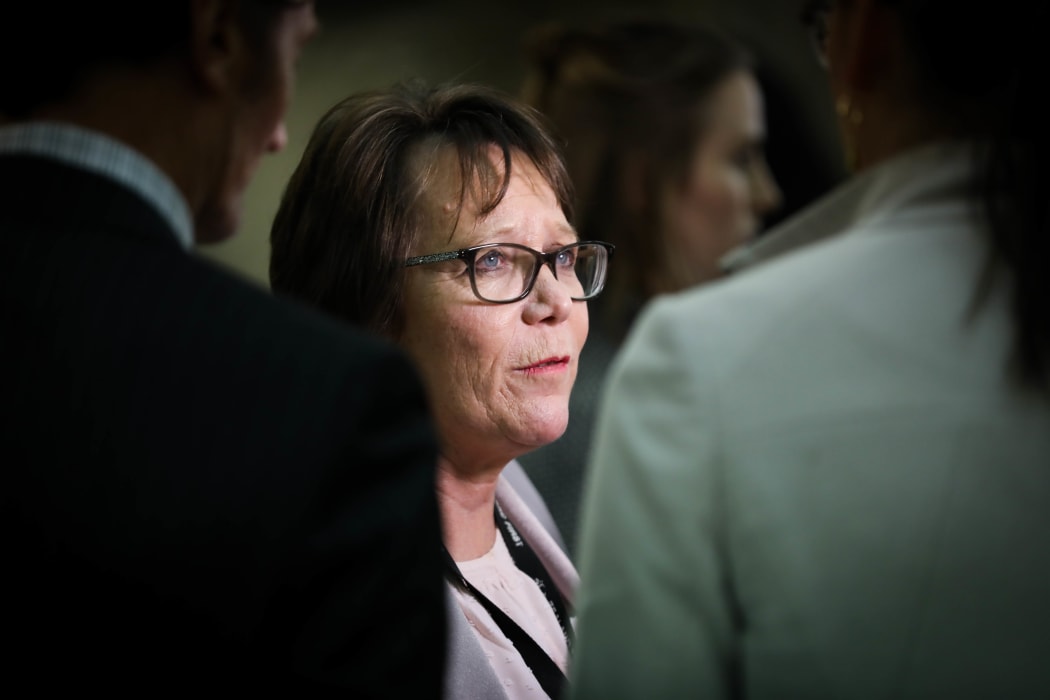
Internal Affairs Minister Tracey Martin insists harm minimisation is at the forefront of the law review. Photo: VNP / Daniela Maoate-Cox
Charlotte's third gambling stint began in March this year. By this point, she had stopped using Mega Moolah and banned herself from many other sites of its ilk, but in moments of weakness she found new online casinos ready to take her money. In the space of three or four months, she spent $20,000.
When she had earlier won $80,000, Charlotte told a couple of friends about her big pay day. She didn't mention how much she'd lost - it was easier telling people about winning. But deep down it was also a cry for help, she says. She waited so long to open up because she feared being judged and perceived as weak. She told her friends with a smile on her face, but they made her promise never to gamble again. In March she broke that promise.
A couple of months ago she met up with those friends. "At one point they asked about my financial situation and I didn't know how to lie to them, so I completely broke down in tears. 'It's gambling, isn't it?' they asked." It was a relief to nod.
Charlotte asked for anonymity when speaking to RNZ. She's now almost two months "gamble-free" but those two friends remain the only ones who know about her struggles. She's seeing a counsellor and going to support groups. She says she's met a lot of mothers and housewives who secretly gamble at home, whether as attempts to help their family's finances, or simply to pass the time. "I never wanted to admit that I was that type of person. I've never hated myself as much as when I was gambling on these sites."
She's still terrified of relapsing. "The accessibility and how quickly it can escalate scares the life out of me. It's just right there at my fingertips."
Where to get help:
Gambling Helpline NZ: 0800 654 655 or text 8006
Problem Gambling Foundation: 0800 664 262
Gambling Helpline - Dept: 0800 654 658

